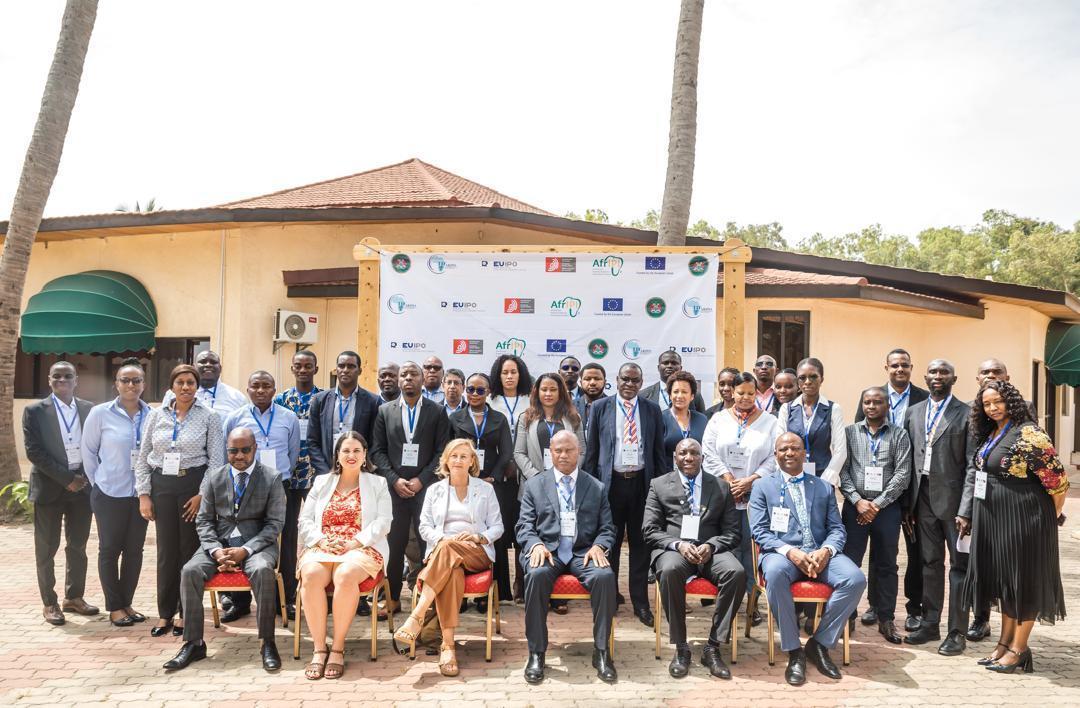Africa-Press – Gambia. In a significant development for Intellectual Property (IP) advancement across Africa, The Gambia in partnership with the African Regional Intellectual Property Organisation (ARIPO), European Patent Office(EPO) and Intellectual Property Rights and Innovation in Africa(AfrIPI) on Monday reaffirmed its commitment to bridging the knowledge and technical gap in patent examination across its member states.
Held in Banjul, the high-level seminar will run from 2-6 June, on patent drafting and prosecution, aimed at bolstering national and regional capacities to handle patent applications effectively and in line with global standards.
The seminar brought together senior delegates from ARIPO member states, as well as high-profile representatives from the European Patent Office (EPO), the African Intellectual Property Rights and Innovation Project (AfrIPI), and key stakeholders from The Gambia’s legal and justice system. The presence of the Solicitor General and Legal Secretary at The Gambia’s Ministry of Justice further underscored the national commitment to strengthening IP governance.
The Intellectual Property Rights and Innovation in Africa (AfrIPI) project was established by the EU (represented by the European Commission) and the EUIPO under the Intellectual Property Rights (IPR) Action for Africa. The Action is implemented jointly by the EU and the EUIPO under the Contribution Agreement.
The African Regional Intellectual Property Organisation (ARIPO) is an intergovernmental institution created to promote, harmonise, and administer intellectual property (IP) rights across Anglophone African countries.
A regional challenge and centralised solution
While ARIPO member states are, in principle, empowered through their national legal frameworks to conduct patent search and examination processes, the reality on the ground paints a different picture. Due to persistent challenges related to inadequate technical knowledge, limited human resources, and outdated infrastructure, many states find themselves unable to conduct timely and high-quality evaluations of patent applications—whether local, regional, or international.
In response, ARIPO has assumed a central role by providing search and examination services on behalf of its member states. This intervention, while temporary, is critical in ensuring that patent applications continue to receive appropriate scrutiny and validation, thereby protecting inventors and stimulating innovation across the continent.
In his opening remark, Mr Husssein Thomasi, solicitor general and legal secretary at the ministry of justice, said intellectual property is a cornerstone of sustainable economic growth.
“In today’s global knowledge economy, the ability of a country to protect and leverage its intellectual assets is directly tied to its capacity to compete, create jobs and deliver solutions to societal challenges. The Gambia fully recognises this, that is why our government has prioritised the development and modernisation of the national intellectual property system. Our commitment is clear; we will welcome and support every opportunity that enhances the protection, enforcement, and commercialisation of IP rights in The Gambia”, Mr Thomasi remarked.
Dr Outule Rapuleng, head of ARIPO academy, emphasised that the long-term goal remains to build self-sufficient national IP systems. However, until such capacity is established, ARIPO’s centralised services serve as a stopgap measure to ensure the integrity and efficiency of patent processes in the region.
“Allow me to share that poorly drafted patents are always cited as one of the causes of the low incidence of patenting in Africa, Africa contributes less than 1% in the global patent landscape. From the standpoint of ARIPO, a fair share of patent applications do not see the light of day because they are poorly drafted. Therefore this training will go a long way in addressing those challenges for long-term goal”, Dr Rapuleng stated.
The Gambia’s strategic role
The Gambia’s hosting of this seminar reflects its growing prominence in regional IP discourse. As one of the key players advocating for increased knowledge exchange and institutional development, The Gambia has positioned itself as a hub for legal and technical dialogue in the ARIPO region.
During the seminar, discussions revolved around patent application drafting techniques, best practices in prosecution, and the legal frameworks required to support robust national patent offices.
Ms Enrica Pallacani, head of cooperation EU delegation, reaffirmed the EU’s commitment in supporting the African continental free trade area.”This is something we started since 2015”.
Nelson Das Neves, EPO shared insights into Europe’s experience in capacity-building and outlined potential pathways for cooperation between African nations and international partners. “We are fully engaged in supporting traditional innovation, strengthening IT capacity, and empowering the next generation of patent professionals”.
Aida Galindo Ortiz, project leader at AfrIPI also addressed the gathering, highlighting ongoing collaborative efforts to harmonise IP systems across Africa and improve enforcement mechanisms. Their support, funded in part by the European Union, aims to drive innovation and economic development by ensuring inventors have access to a reliable, transparent patenting process.
“One of AfrIPI’s mandates is to strengthen all Intellectual Property (IP) rights including patents, to advance Africa’s intellectual property ecosystem in support of the African Union’s African Continental Free Trade Area (AfCFTA) Agreement and agenda 2063. At the heart of these continental instruments lies support for intellectual property rights in order to foster innovation and stimulate sustainable development”, she disclosed.
The dialogue in Banjul may only be a starting point, but it marked a vital step toward a future where African inventors and entrepreneurs are supported by a resilient and capable intellectual property ecosystem.
For More News And Analysis About Gambia Follow Africa-Press






